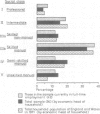Abstract
A community sample of 94 adults with epilepsy were interviewed in their homes by a sociologist and a neurologist. Less than half of those who had worked full-time after the onset of their seizures could recall that their careers had been inhibited by their epilepsy, yet most felt 'at risk' and chose to conceal their condition from their employers or potential employers. Disadvantage in employment was found to be related both to a working class status and to a high rate of epileptic activity. We suggest that epileptics are prone to deny themselves career opportunities.
Full text
PDF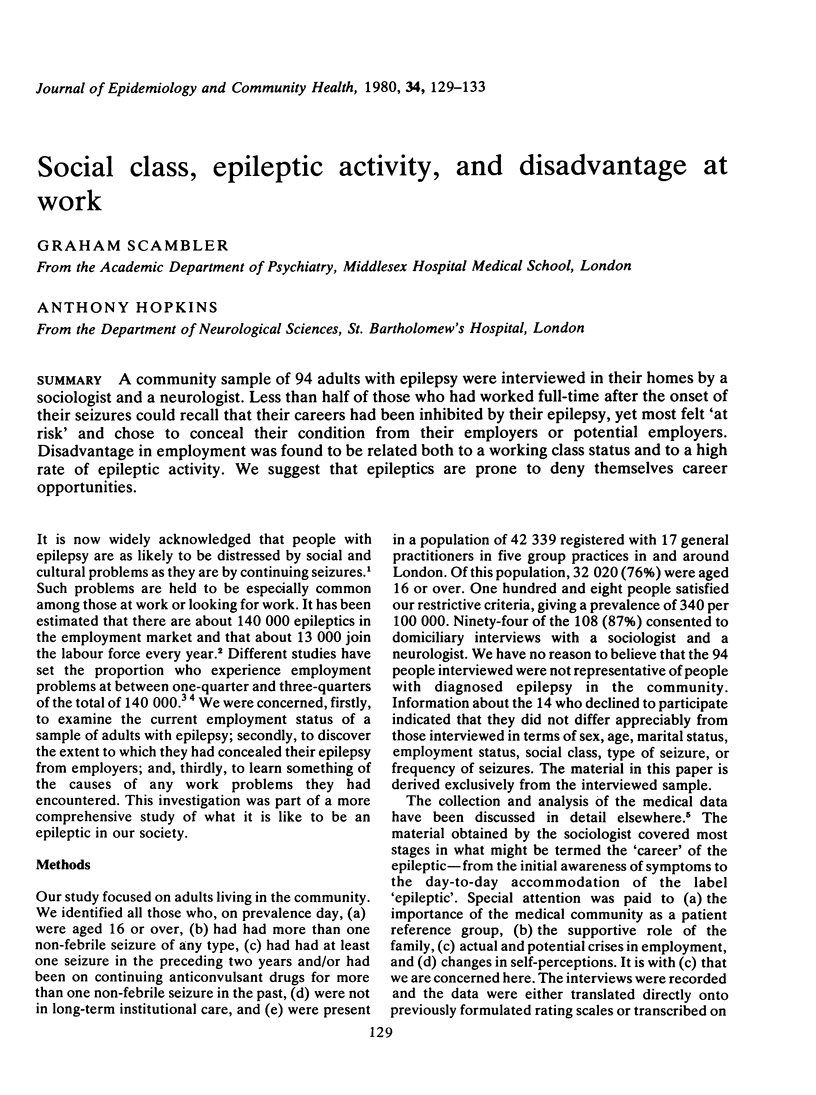
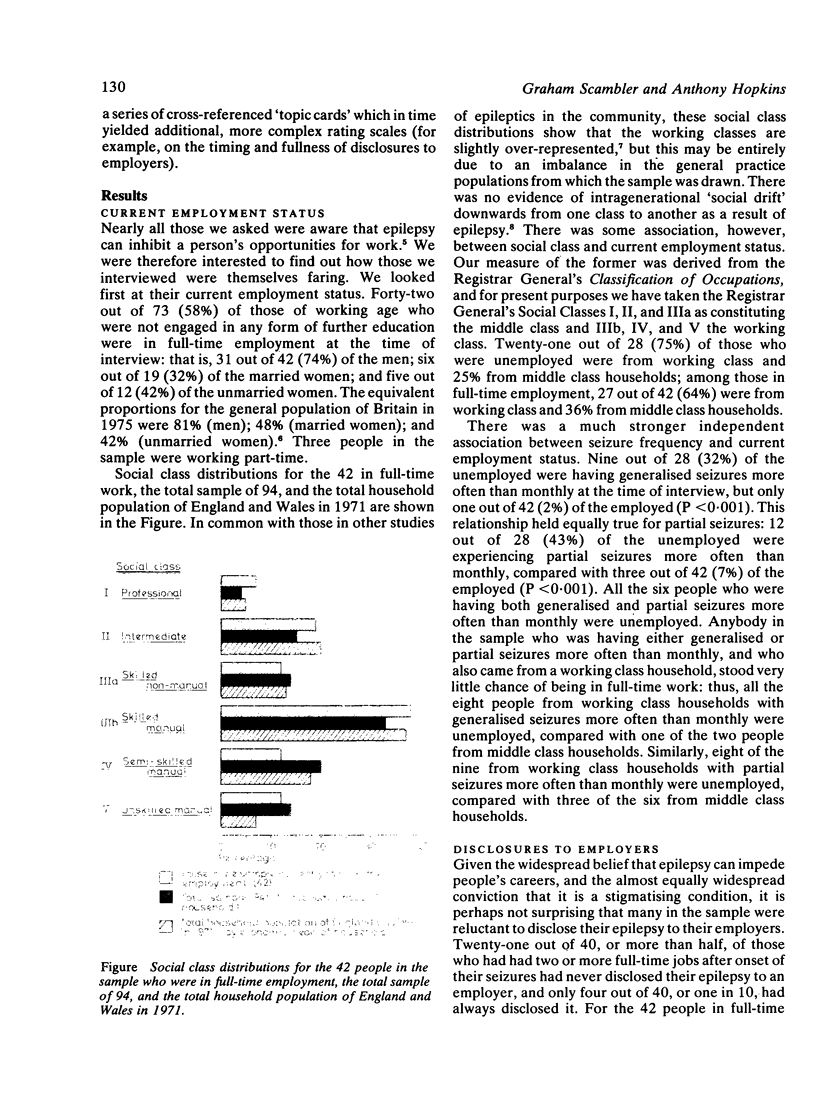
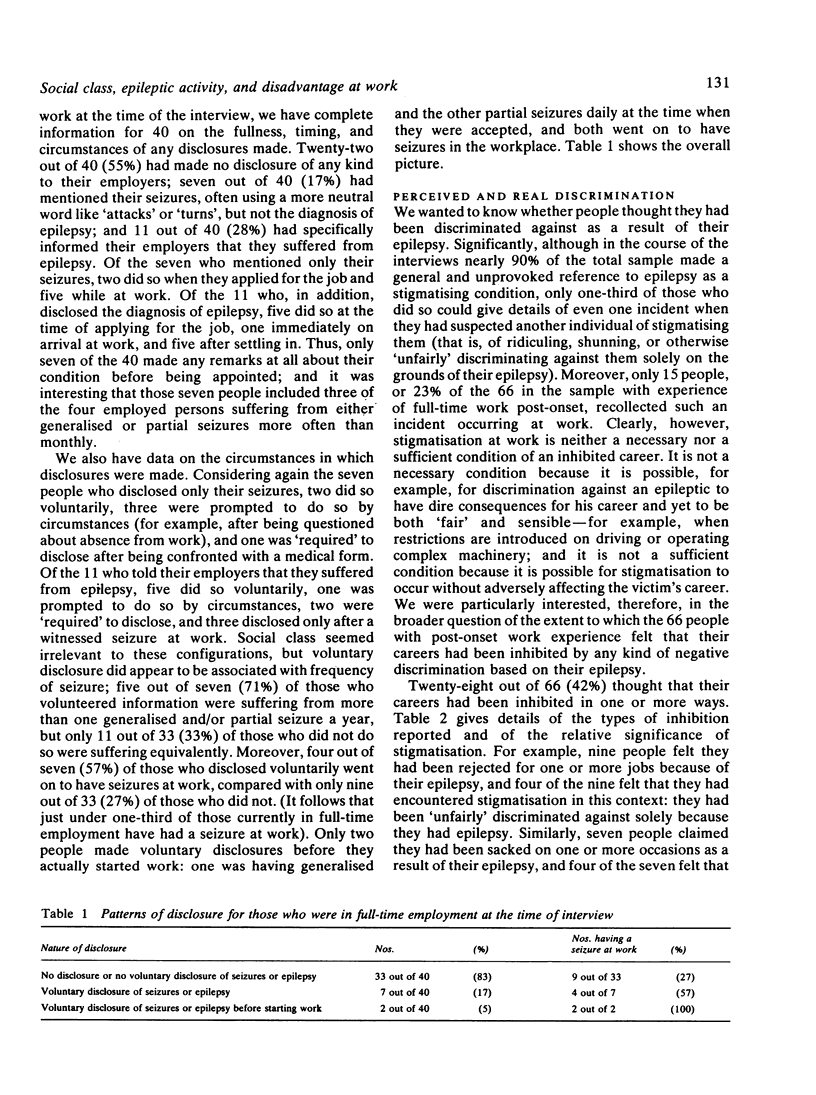
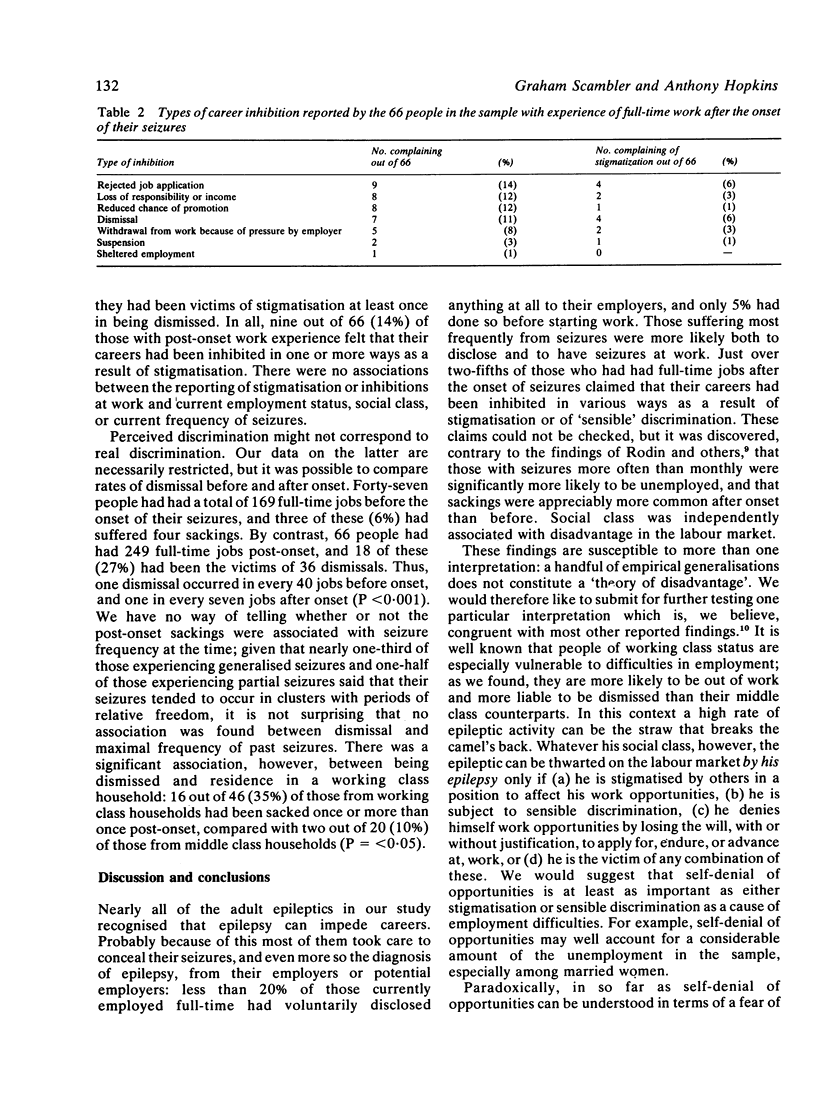
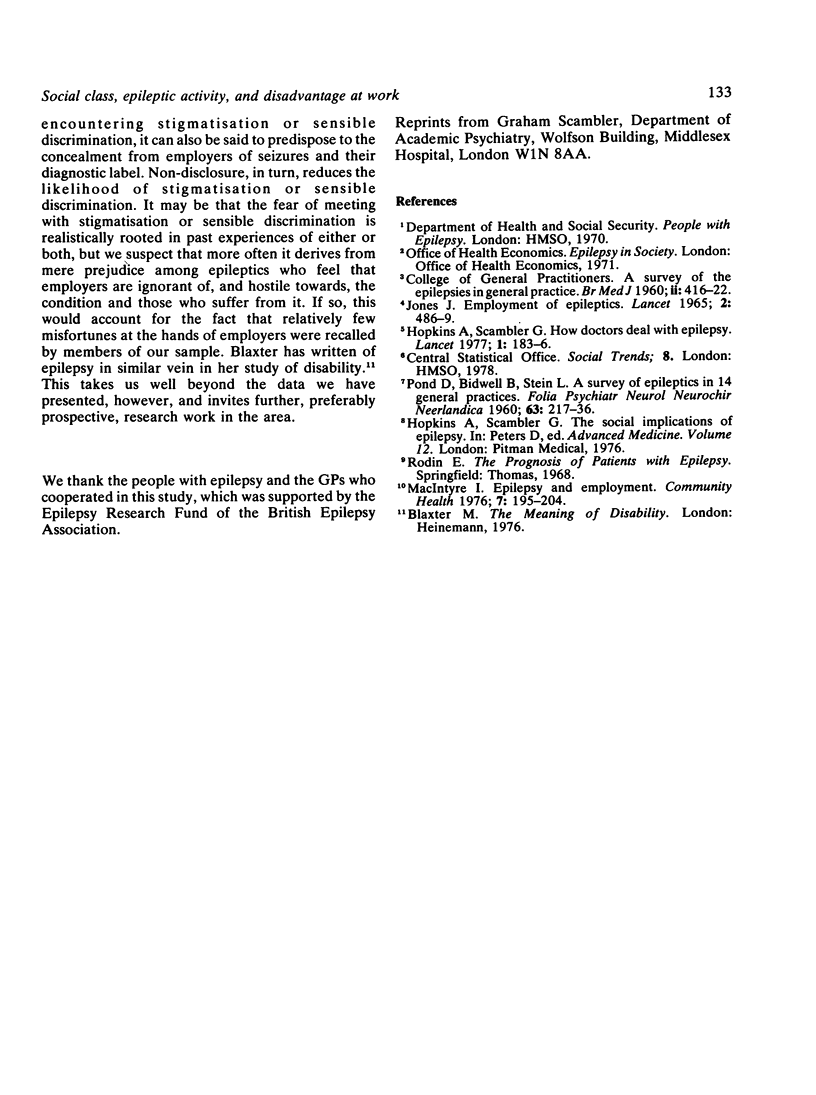
Images in this article
Selected References
These references are in PubMed. This may not be the complete list of references from this article.
- Hopkins A., Scambler G. How doctors deal with epilepsy. Lancet. 1977 Jan 22;1(8004):183–186. doi: 10.1016/s0140-6736(77)91777-9. [DOI] [PubMed] [Google Scholar]
- JONES J. G. EMPLOYMENT OF EPILEPTICS. Lancet. 1965 Sep 4;2(7410):486–489. [PubMed] [Google Scholar]
- MacIntyre I. Epilepsy and employment. Community Health (Bristol) 1976 Apr;7(4):195–204. [PubMed] [Google Scholar]
- POND D. A., BIDWELL B. H., STEIN L. A survey of epilepsy in fourteen general practices. I. Demographic and medical data. Psychiatr Neurol Neurochir. 1960 Jul-Aug;63:217–236. [PubMed] [Google Scholar]



